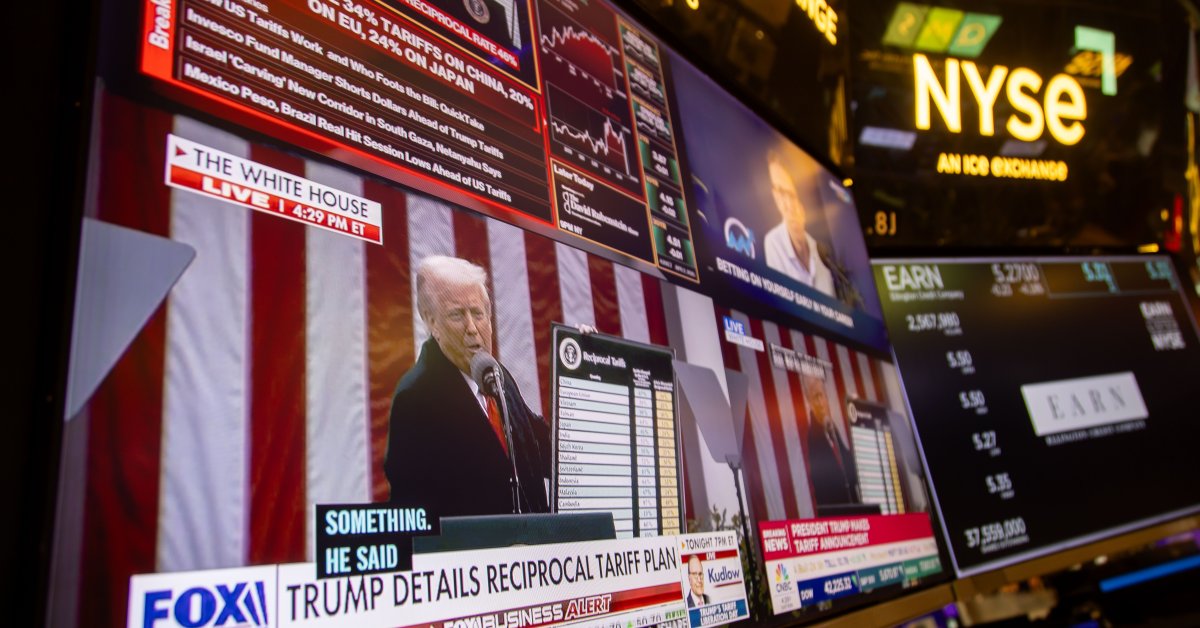Trump Tariffs: US Recession Looms? A Deep Dive into Economic Uncertainty
The shadow of a potential US recession looms large, fueled by ongoing debates surrounding the lasting impact of the Trump-era tariffs. While the immediate effects might be nuanced, the lingering economic consequences are a subject of intense scrutiny among economists and policymakers alike. This article delves into the complexities of the situation, analyzing the arguments for and against the tariff's contribution to current economic instability.
The Tariffs: A Brief Recap
During his presidency, Donald Trump implemented a series of tariffs, primarily targeting China, aiming to protect American industries and reduce the trade deficit. These tariffs, ranging from steel and aluminum to consumer goods, significantly impacted global trade flows and sparked retaliatory measures from affected countries.
The Argument for Tariff-Induced Recession:
Proponents of this view argue that the tariffs imposed substantial costs on American businesses and consumers. These costs manifested in several ways:
- Increased Prices: Tariffs directly increased the price of imported goods, leading to higher inflation for consumers and reduced purchasing power.
- Supply Chain Disruptions: Retaliatory tariffs and trade wars disrupted global supply chains, leading to shortages and increased production costs.
- Reduced Investment: The uncertainty created by the tariff policies discouraged investment and hindered economic growth.
- Job Losses: While the initial intention was to protect American jobs, some sectors experienced job losses due to reduced competitiveness and retaliatory measures.
These combined factors, they argue, contributed to a weakened economy, increasing the likelihood of a recession. The current inflationary pressures and slowing economic growth are cited as evidence supporting this claim.
Counterarguments and Alternative Explanations:
Opponents of this view acknowledge the negative impacts of some tariffs, but argue that other factors contributed significantly to the current economic climate. These factors include:
- The COVID-19 Pandemic: The global pandemic drastically altered economic landscapes, impacting supply chains, consumer behavior, and global trade. Attributing the current economic uncertainty solely to the tariffs overlooks the pandemic's significant and multifaceted role.
- Global Inflation: Inflation is a global phenomenon, not solely a US issue. Factors like rising energy prices and supply chain bottlenecks, independent of the tariffs, played a crucial role in driving inflation worldwide.
- Monetary Policy: The Federal Reserve's monetary policy decisions, particularly interest rate hikes, also significantly impact economic growth and inflation. These policies are an independent factor influencing the current economic situation.
Analyzing the Data: A Complex Picture
Economic data surrounding the impact of Trump's tariffs is complex and often contradictory. While some studies show a negative correlation between the tariffs and economic growth, others find limited or inconclusive evidence. The difficulty lies in isolating the impact of tariffs from other concurrent economic factors.
Looking Ahead: Predicting the Future
Predicting whether the Trump tariffs are a significant contributor to an impending US recession remains challenging. The current economic climate is a complex interplay of various factors, making it difficult to isolate the specific impact of any single policy. Further research and analysis are needed to fully understand the long-term consequences of these trade policies.
Conclusion:
While the Trump-era tariffs undoubtedly contributed to economic uncertainty, attributing a potential recession solely to them is an oversimplification. The current economic situation is a confluence of multiple factors, including the pandemic, global inflation, and monetary policy. A comprehensive analysis requires considering these intertwined elements to arrive at a more nuanced and accurate understanding. The ongoing debate highlights the complex nature of international trade and its profound impact on national economies.
Call to Action:
Stay informed about the evolving economic landscape by following reputable sources of economic news and analysis. Understanding the complexities of international trade and economic policy is crucial for navigating the uncertainties ahead.

